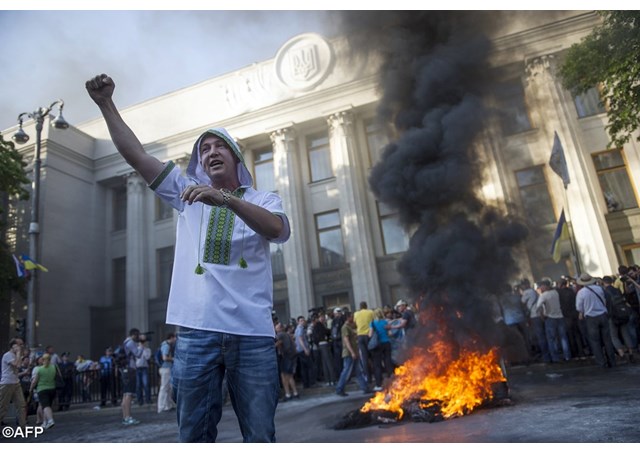
EU pledging billions to Ukraine despite rights concerns

(Vatican Radio) The European Union has agreed a multi-billion dollar loan to Ukraine despite new allegations over human rights abuses in the ongoing conflict there between Kiev's forces and separatists. Friday's landmark deal for a non-EU nation was announced at a summit in the Latvian capital Riga between leaders of the 28-nation Union and six ex-Soviet nations.
Listen to the report by Stefan Bos:
The $2 billion loan to Ukraine aims to help cash-strapped Ukraine to introduce economic reforms as ongoing fighting between government troops and Russian-backed separatists in the east takes its toll.
But the announcement in Riga came despite advocacy group Amnesty International saying it had found evidence that both sides in the conflict were torturing prisoners and that rebels have been conducting summary executions.
The EU also pledged more than $200 million in grants to Ukraine and the other five Eastern Partnership countries Armenia, Azerbaijan, Belarus, Georgia and Moldova.
EU President Donald Tusk made clear it was a clear message to Russia that the 28-nation block wants to boost ties with former Soviet nation at a time of turmoil in Ukraine. "This message of our continued, consistent and strong commitment to the Eastern partnership and each of our partner countries is the main message of the summit," he said.
"Necessary Message"
"And it is a necessary message in light of last year's turmoil, aggression, intimidation and even war in this part of Europe."
Moscow has consistently denied it supports pro-Russian separatists with weapons and regular troops. But Europe's security organization OSCE said that two men captured in Ukraine have acknowledged that they are Russian soldiers.
The Riga summit declaration also criticized Russia's annexation of Ukraine's Crimean Peninsula and its supports for separatist regions in Georgia.
Tusk said that amid the ongoing turmoil, the EU wants to increase cooperation with the six former Soviet countries in key areas.
"Today we confirmed our intention to make energy and transport cooperation distinct priorities for the coming years," he explained. "Overall we agreed to advance our cooperation in those areas which bring tangible benefits to our partner societies and economies and in particular is state-building, mobility, and people-to-people contacts, market opportunities and interconnections."
Showing Optimism
Though uncertainty remains, European Commission President Jean-Claude Junker expressed optimism about Georgia and Ukraine and said visa liberalization is on the horizon, making it easier for citizens in those countries to travel to the West. "Georgia and Ukraine have made enormous progress in the recent months", he said.
"I was able to handover to the Georgian and the Ukrainian authorities the list of issues on which Georgia needs to make some progress. The Commission will be publishing its next evaluation around the 15th December and then the Council will take the decision. I am very optimistic about liberalising the visa regimes for Ukraine and Georgia."
Georgia, Ukraine and Moldova want to become EU members one day, while the others prefer limited cooperation with the bloc.
Yet there were some unexpected incidents on the sidelines of the gathering: Jean-Claude Juncker teased Hungarian Premier Viktor Orban over his strongman reputation Friday, jokingly greeting with the words "hello dictator".
Orban replied: "Hello Grand Duke," a reference to Juncker's native Luxembourg, known as the Grand Duchy even though it is one of the smallest countries in the world.
The Hungarian leader has recently angered EU lawmakers and officials by insisting that Budapest had the right to debate closing the door to migrants and reintroducing the death penalty.
| All the contents on this site are copyrighted ©. |


